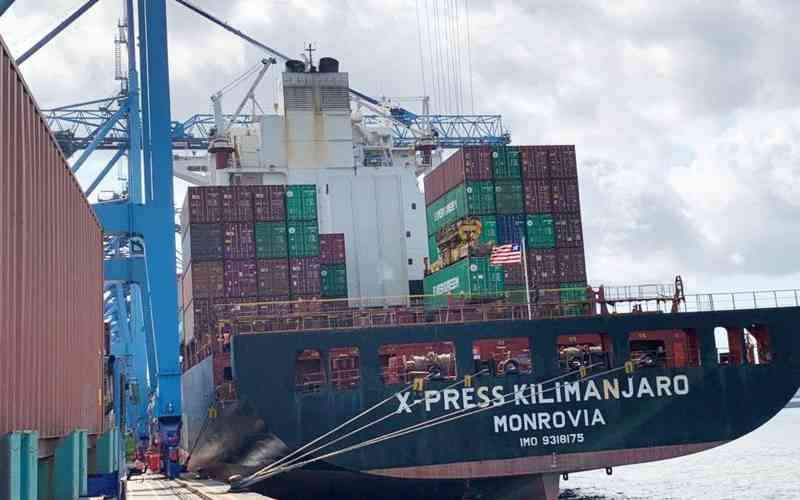Beginning October 1, 2025, clearing goods at Mombasa Port has not been business as usual. Whether you are a large manufacturer importing heavy machinery or an individual entrepreneur bringing in a single container of clothing, the Kenya Revenue Authority (KRA) now requires one key document before clearing your goods: a Certificate of Origin (CoO).
For decades, the certificate was necessary only if an importer wished to benefit from lower tariffs under a trade agreement like the East African Community (EAC), the Common Market for Eastern and Southern Africa, or the African Continental Free Trade Area (AfCFTA). Most shipments passed through with nothing more than the minimum requirements, invoices, bills of lading, and permits.
However, the Finance Act 2025 has introduced changes, making a CoO a necessity for every import. This raises the big question now dominating Kenya’s trade debate: Is the government actively pursuing transparency, or increasing costs for honest traders? On paper, introduction of the CoO looks like a strategy to plug tax loopholes, but the reality is, it has the potential to drive up costs, slow trade, and sour relations with Kenya’s closest partners.
It is important to note that the KRA has issued a list of items that are exempt from obtaining the certificate. This includes imports by specific people and organisations that are given special privileges under the law, used motor vehicles, personal baggage and effects, and individual packages that do not exceed the weight and value provided under Regulation 119 (30) of the East African Community Customs Management Act imported through a registered courier. Other goods include mailbags and postal parcels imported by post, human remains, imported samples of no commercial value and small packages of medication with a doctor’s prescription.
Follow The Standard
channel
on WhatsApp
Obtaining a CoO does not come easy. Exporters must apply through chambers of commerce or governmental agencies in their exporting countries, and there is a charge per consignment. Charges vary, but they can add up quickly. For high-volume and low-margin businesses such as electronics, spare parts, or apparel, the new requirement may wipe out profits. Ultimately, these costs will be passed down the line, and consumers will be the ones who pay.
Each shipment will also mean more paperwork, new levels of coordination with suppliers, and longer clearance times. Customs authorities will have to verify certificates that come from hundreds of various locations. Any discrepancy can trigger physical inspection, demurrage, or costly storage delays.
For an economy already struggling with congestion at ports, this is not a trivial problem. As one clearing agent put it, “The goods may eventually land, but so will higher prices.”
Kenya has lost billions of shillings in the past to misclassification of goods, under-invoicing, and false declarations of origin. This makes the government’s intention understandable – a CoO that is compulsory gives customs officials a record of every consignment and makes it harder for illegal traders to navigate the loopholes.
But the unilateral decision to insist on the certificate for every import goes beyond what is allowed under regional law. Under the East African Community Customs Management Act, the CoOs are only necessary when an importer asks for preferential tariffs. By insisting on a CoO on every import, Kenya is set to create a non-tariff barrier.
This move would very easily be viewed by neighbours as protectionist and in violation of EAC laws. Such unilateralism in a region where integration is still tenuous may draw controversy and undermine the trust necessary to make the AfCFTA and EAC meaningful. Kenya cannot be perceived to be acting unilaterally to negotiate regional trade terms.
The loudest warnings are coming from the private sector. The Shippers Council of Eastern Africa has forecast chaos if customs officials are forced into manual verification of certificates. The Retail Trade Association of Kenya has labelled the measure “an extra burden to an industry already hurting in a difficult business environment.”
The dangers are particularly glaring for SMEs. Unlike large multinationals, who can hire compliance experts and absorb new costs, SMEs have wafer-thin profit margins. They need speed, volume, and predictability. Turning every shipment into a legal and financial gamble could push some traders out of business altogether or into informal channels where oversight is weaker.
For consumers, the word is simple: Expect to pay more. From imported medicines to school supplies to spare parts, the cost of compliance will inevitably be passed on to the retail price.
No one disputes that Kenya needs to raise more revenue and seal tax loopholes, but a blanket requirement for all shipments, is blunt and heavy-handed. It punishes honest traders as much as dishonest ones.
There is a smarter balance to be achieved First, KRA could automate and synchronise the process with neighbouring partners so that certificates can be checked in real-time and not by hand. Second, government should allow phased implementation so that firms have time to adapt without putting them under a sudden time constraint. Third, it is crucial to consult trade associations to smooth out discrepancies with regional law and avoid legal disputes and trade tensions.
The objective must be to shut loopholes and not suffocate legitimate business. If the cost of compliance exceeds the profit on the trade, then the law eventually hurts the very economy it was meant to protect.
Mr Ngumy is the Managing Partner, Anjarwalla & Khanna LLP. Chelangat is an Associate at Anjarwalla & Khanna LLP
Follow The Standard
channel
on WhatsApp
By Daniel Ngumy and Faith Chelangat
